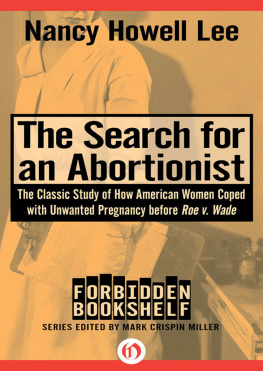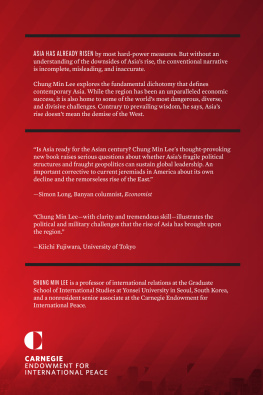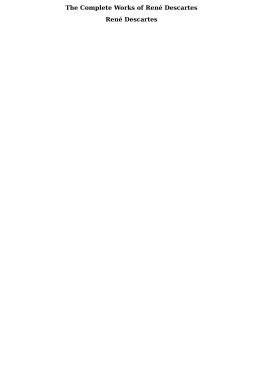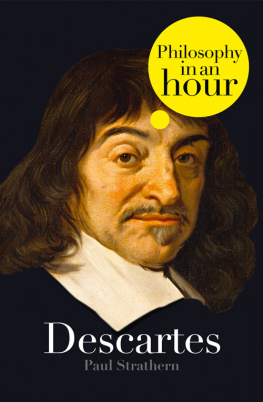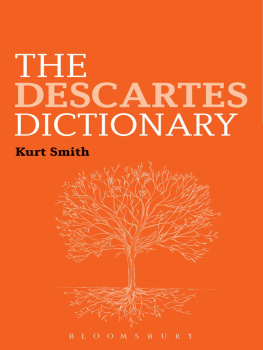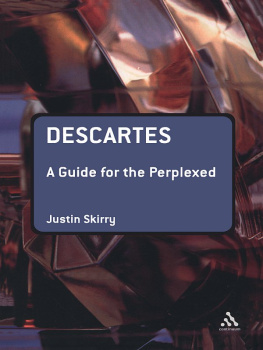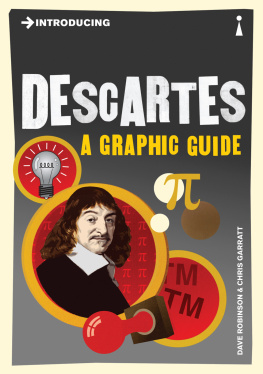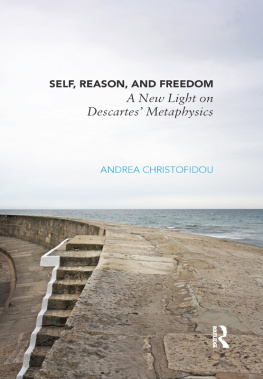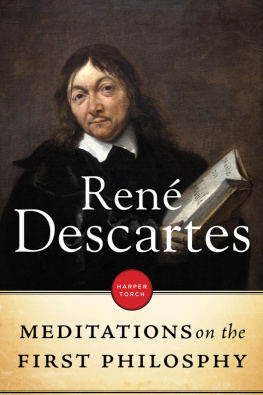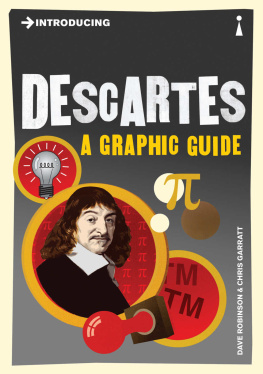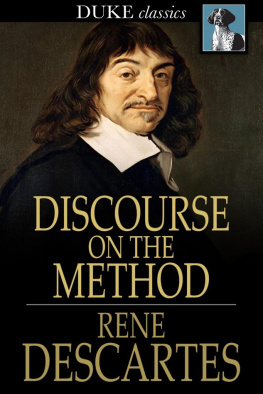Lee - Reading Descartes otherwise: blind, mad, dreamy, and bad
Here you can read online Lee - Reading Descartes otherwise: blind, mad, dreamy, and bad full text of the book (entire story) in english for free. Download pdf and epub, get meaning, cover and reviews about this ebook. City: United States, year: 2014;2013, publisher: Fordham University Press, genre: Religion. Description of the work, (preface) as well as reviews are available. Best literature library LitArk.com created for fans of good reading and offers a wide selection of genres:
Romance novel
Science fiction
Adventure
Detective
Science
History
Home and family
Prose
Art
Politics
Computer
Non-fiction
Religion
Business
Children
Humor
Choose a favorite category and find really read worthwhile books. Enjoy immersion in the world of imagination, feel the emotions of the characters or learn something new for yourself, make an fascinating discovery.

Reading Descartes otherwise: blind, mad, dreamy, and bad: summary, description and annotation
We offer to read an annotation, description, summary or preface (depends on what the author of the book "Reading Descartes otherwise: blind, mad, dreamy, and bad" wrote himself). If you haven't found the necessary information about the book — write in the comments, we will try to find it.
Reading Descartes otherwise: blind, mad, dreamy, and bad — read online for free the complete book (whole text) full work
Below is the text of the book, divided by pages. System saving the place of the last page read, allows you to conveniently read the book "Reading Descartes otherwise: blind, mad, dreamy, and bad" online for free, without having to search again every time where you left off. Put a bookmark, and you can go to the page where you finished reading at any time.
Font size:
Interval:
Bookmark:
Reading Descartes Otherwise
Blind, Mad, Dreamy, and Bad
Kyoo Lee

Copyright 2013 Fordham University Press
All rights reserved. No part of this publication may be reproduced, stored in a retrieval system, or transmitted in any form or by any meanselectronic, mechanical, photocopy, recording, or any otherexcept for brief quotations in printed reviews, without the prior permission of the publisher.
Fordham University Press has no responsibility for the persistence or accuracy of URLs for external or third-party Internet websites referred to in this publication and does not guarantee that any content on such websites is, or will remain, accurate or appropriate.
Fordham University Press also publishes its books in a variety of electronic formats. Some content that appears in print may not be available in electronic books.
Library of Congress Cataloging-in-Publication Data is available from the publisher.
Printed in the United States of America
15 14 13 5 4 3 2 1
First edition
Special institutional thanks are due to the Department of Philosophy and The Office for the Advancement of Research, John Jay College, The City University of New York.
For the last few years while drafting this book, I have also benefited greatly from some extra time and space provided by the following institutions:
Faculty Research Fellowship, The Andrew W. Mellon Foundation The Center for the Humanities, The Graduate Center, CUNY Wertheim Study, The New York Public Library PSC-CUNY Research Award (PSCOOC-39-142), Research
Foundation of CUNY
Visiting Professorship, Wuhan University
Countless personal thanks are also due, but more personally.
All references to the works of Descartes are to the Oeuvres de Descartes, abbreviated in this book as AT. The English translation I have used (unless otherwise noted) is The Philosophical Writings of Descartes, abbreviated as CSM. For ease of reading, I have used the following system throughout the text: M, 7:19/2:13 (usually formatted as AT VII 19/CSM II 13) refers to Meditations on First Philosophy, as printed in Oeuvres de Descartes, volume 7, .
For the Geometry, Optics, and part of the Correspondence, different translations were used, as noted here, but the citation format remains the same. For example, O, 6:141/108 refers to Optics, as printed in Oeuvres de Descartes, volume 6, . When the non-CSM translation of the Correspondence is used, the citation is provided in a regular note.
When AT alone is used, it is indicated accordingly: (Pt, 10:181), for example. When a passage from AT is used from a part that is not included in this listing, such as from the biographical notes (AT XII), it is indicated accordingly: (12:305), for example.
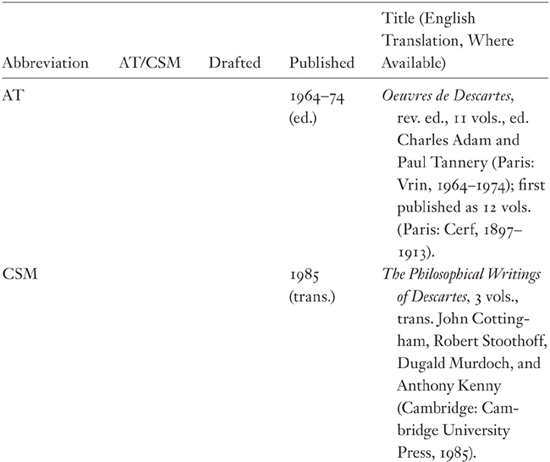
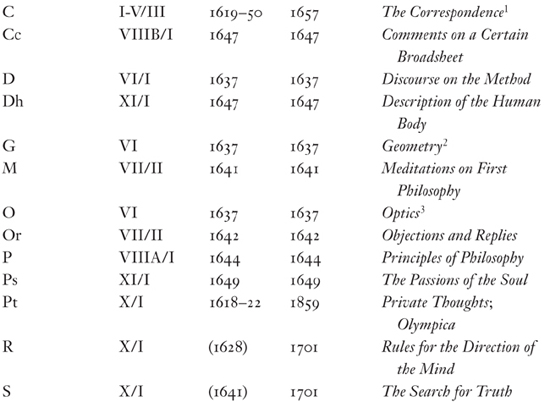
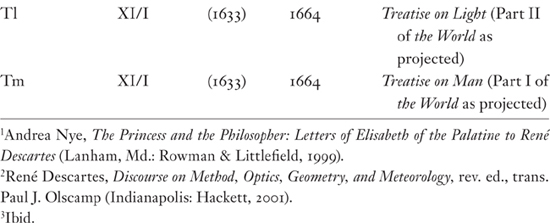
We must acknowledge the weakness of our nature.
REN DESCARTES (15961650), Meditation VI
I should like it best if you never put forward any new opinions, but retained all the old ones in name, and merely brought forward new arguments. What is done cannot be undone. Now you must try to defend as moderately as possible the truths you put forward, and to correct without any obstinancy anything you may have said which is untrue or inexact. Remind yourself that there is nothing more praiseworthy in a philosopher than a candid acknowledgement of his errors.
REN DESCARTES (15961650), Letter to Regius, January 1642
If Descartes Remains Overread and Underexplored
It has been almost a decadeor two if I keep counting.
Reading, or otherwise sitting on, the work of Ren Descartes (March 31, 1596February 11, 1650) with the quiet pleasure I see in a g(r)azing cow, I have been savoring, and saving somewhere, this nagging thought: His philosophyhis Cartesianism, his rationalism, his methodological doubt, his theoretical self-centeredness, his historicized him-nessseems to remain overread and underexplored. I have been sensing that something else is going on, too, in those usual pages, in that familiar picture. And here, I am inviting you, my readers, to read with me this strangely intimate distance that the Cartesian I appears to maintain with and from itself: this marginal, magical void within the Cartesian ego filled with phenomenological energies and voices, which I have come to see as not only irreducible but also liberating in some ways. I have begun to realize that I might have been in a string of sporadic side talks or small talks with a cast of minor Cartesian characters and unforeseen associates including, perhaps, myself or someone like myself.
If so, so be it, as in larvatus prodeo (I advance masked) with the cheeks flamingmark that mask and those cheeks:
Fear of God is the beginning of wisdom. The actors, called to the scene, in order to hide their flaming cheeks, don a mask. Like them, when mounting the stage in the theatre of the world, where, thus far, I have only been a spectator, I advance masked [Larvatus prodeo]. (Pt, 10:213/1:2, trans. modified)
This mode of self-presentation, the figural indirection or suspension of as-if that frames and tones most of Descartes oeuvre, also coheres with the Ovidian low-profile lifestyle he assiduously duplicated, namely, Bene vixit qui bene latuitOne who lives well, keeps himself well hiddenor to paraphrase it into an imperative, Go through life without drawing attention to yourself (C, 1:286). In the 1634 letter that contained this thought, Descartes was expressing his urbane taste and desire for privacy and anonymity to one of his most supportive and trusted confidants, Marin Mersenne, who was the information hub of the post-Renaissance early modern Europe, an intellectual diplomat par excellence who knew and kept an archive of many closeted characters of Paris. A host of other free-thinking young things such as Galileo Galilei, Thomas Hobbes, and Pierre Gassendi were among Mersennes close friends; to that man on an unofficial yet unwavering mission we owe much of our intimate knowledge of how (the mind of) Descartes worked and evolved. So, partly thanks to him, we have some sense of Descartes the person as well, of the private, mobile man of plural voices. What sustains my curiosity is not the thinkers quirky little (auto)biographical details or (socioenvironmental-)psychological realities per se, although they remain relevant. Of primary interest to me is, in a sense more simply, the subject position of that person intricately subject to objectification including self-thing-ification, as indexed in such philosophically inflected traces of I, including I vis--vis You. What I want to figure out, while working through such Cartesian codes of selfhood, is what happens in and around such acts of mediated self-reflection or more broadly self-introspection and dialogue.
Take this curious little passage that follows larvatus prodeo
Next pageFont size:
Interval:
Bookmark:
Similar books «Reading Descartes otherwise: blind, mad, dreamy, and bad»
Look at similar books to Reading Descartes otherwise: blind, mad, dreamy, and bad. We have selected literature similar in name and meaning in the hope of providing readers with more options to find new, interesting, not yet read works.
Discussion, reviews of the book Reading Descartes otherwise: blind, mad, dreamy, and bad and just readers' own opinions. Leave your comments, write what you think about the work, its meaning or the main characters. Specify what exactly you liked and what you didn't like, and why you think so.


